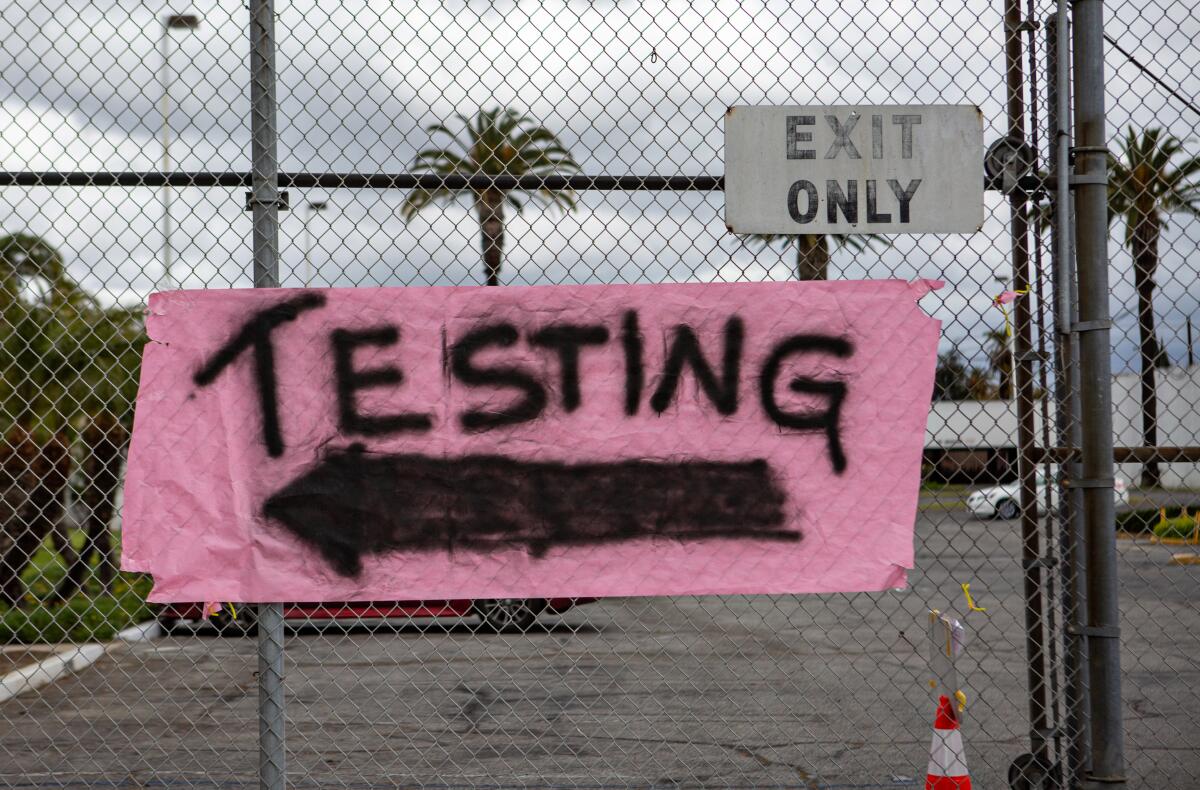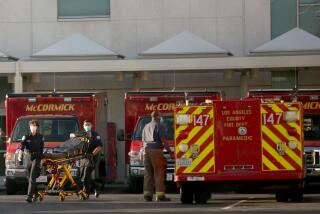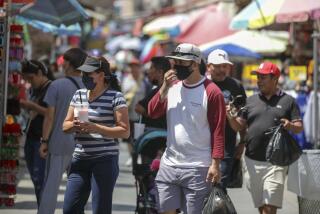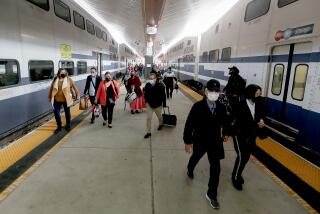Black people are disproportionately hit hard by coronavirus. L.A. County is taking action

- Share via
Los Angeles County’s health services department will partner with a local private nonprofit university to expand testing access to South L.A. residents and analyze demographic data to better determine how diverse communities are being affected by the coronavirus outbreak.
A coronavirus mobile testing site will open Wednesday at the Charles Drew University of Medicine and Science to serve residents in Willowbrook, South Los Angeles and surrounding neighborhoods.
For the record:
2:35 p.m. April 8, 2020A previous version of this story said the county public health department is involved in the expansion of testing. It is the county’s health services department.
The university will also begin working with the Los Angeles County Department of Public Health to collect and analyze demographic data, including information on ethnicity and ZIP code in relation to the number of tests performed, test results, hospitalization and fatality rates.
“It is heartening to know that residents of South L.A. and the surrounding areas will now have a convenient place to get tested,” Supervisor Mark Ridley-Thomas said in a statement. “It is imperative, now more than ever, to ensure that we are continuing our work against longstanding health disparities by ensuring greater equity and access to resources in our communities.”
Ridley-Thomas said the demographic data will help better ensure resources are equitably distributed to the communities that need them most.
On Tuesday, Los Angeles County health officials released preliminary data that showed black residents were dying at a slightly higher rate than other races.
The data, which L.A. County public health director Barbara Ferrer cautioned were based on just 57% of reported deaths so far, provide the first official snapshot of the coronavirus illness’ impact on race in the state of California. The release follows recent findings that black people are falling to the illness at higher rates than other races in cities like Chicago, Detroit, Milwaukee and Washington, D.C.
As of Tuesday, the county said that 169 people had died of COVID-19. Of those deaths, officials had racial information for 93 and released the following breakdown:
Latino 28%
White 27%
Asian 19%
Black 17%
Other 9%
“When we look at these numbers by the total population of each group, African Americans have a slightly higher rate of death than other races,” Ferrer said.
Black people make up 9% of the population of L.A. County.
Meanwhile, Latinos comprise nearly half the county population but 28% of deaths.
The coronavirus death percentages for white and Asian residents more closely matched their share of the county population.
Nationwide, states have started releasing data that show stark disparities between black and white victims of the coronavirus infection.
Local leaders hope the new testing site and data analysis will help better ensure everyone gets the help they need during the outbreak.
“The higher death rates from COVID-19 in Black communities is sadly, not surprising,” Dr. Deborah Prothrow-Stith, the university’s College of Medicine dean, said in a statement. “There is an old saying in the Black community that when America gets a cold, the Black community gets pneumonia. The disparities that exists in healthcare are not explained by any one factor; multiple things add up to increase risk and create more severe outcomes. Poverty, institutional racism, poor public schools, lack of health insurance and lack of access to healthcare are some of those factors. With COVID-19, the higher rates of chronic diseases like high blood pressure, diabetes and kidney failure among African-Americans help explain the higher rates of death from the disease among Black Americans.”
Recently, a Los Angeles Times analysis found that many of L.A. County’s whitest and wealthiest enclaves were reporting far higher rates of infection than poorer neighborhoods of color. However, public health officials said those disparities did not necessarily mean the virus was spreading more widely through richer neighborhoods than in poorer ones. Instead, the reporting was likely skewed by uneven access to testing and, in some instances, by wealthy residents who traveled internationally and had some of the earliest confirmed infections.
More to Read
Sign up for Essential California
The most important California stories and recommendations in your inbox every morning.
You may occasionally receive promotional content from the Los Angeles Times.












